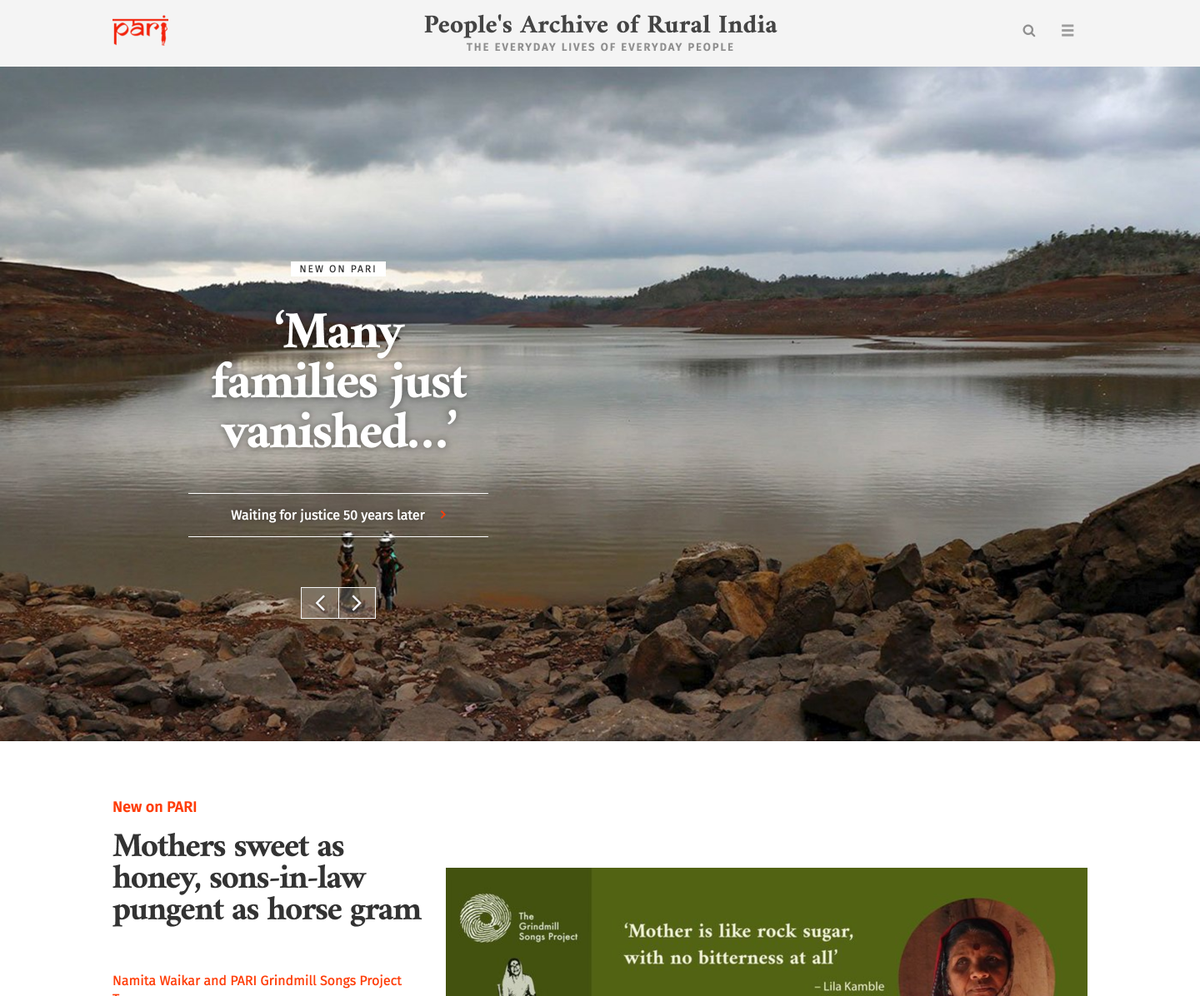
People's Archive of Rural India
People's Archive of Rural India is a journalism platform, a digital textbook and living journal of the Indian countryside. At PARI you will find the stories of the everyday lives of everyday people of India.While corporate journalism has taken over Indian journalism, rural reporting is virtually absent. In a predominantly rural country this means that there is an ever increasing gulf between mass-media and mass reality.
Over the last nearly three years of PARI's existence -- and last 30 years of its founder editor P Sainath's journalism -- we are cultivating new generations of journalists who go and live in the parts of the country on which they report. PARI's journalists have developed a consistent and structured dialogue with Indian society.
PARI's material is in Creative Commons and is free to be used, particularly in schools and colleges. PARI is presently used as a textbook in primary and secondary schools across India, as well as journalism departments and South Asian studies departments across the world. Typically, in the classrooms that PARI is used as a textbook, students themselves do rural reporting as assignments -- they work with our experienced and skilled editors -- and see their homework live on PARI as real, published work.
PARI's extensive volunteer program makes sure that everyone from the youngest to the oldest can participate in our work. With projects like "Faces" where photographs of people from every district of the country are shown, PARI encourages the phenomenon of the "unselfie". PARI volunteers don't just take selfies, and visit places as tourists, but start a meaningful conversation with the people of the place. They get to know their occupations, work, culture and daily lives.
Inspired People's Archive of Rural India, other projects have started across the world. People's Archive of Antigonish, in Nova Scotia, Canada is one example. Other amazing examples are in the works across Africa and North America.
People's Archive of Rural India is thus, an archive of the living past, a journal of the present, a textbook for the future.
Visit site